Anchoring a Community through
Scholarship and Creativity
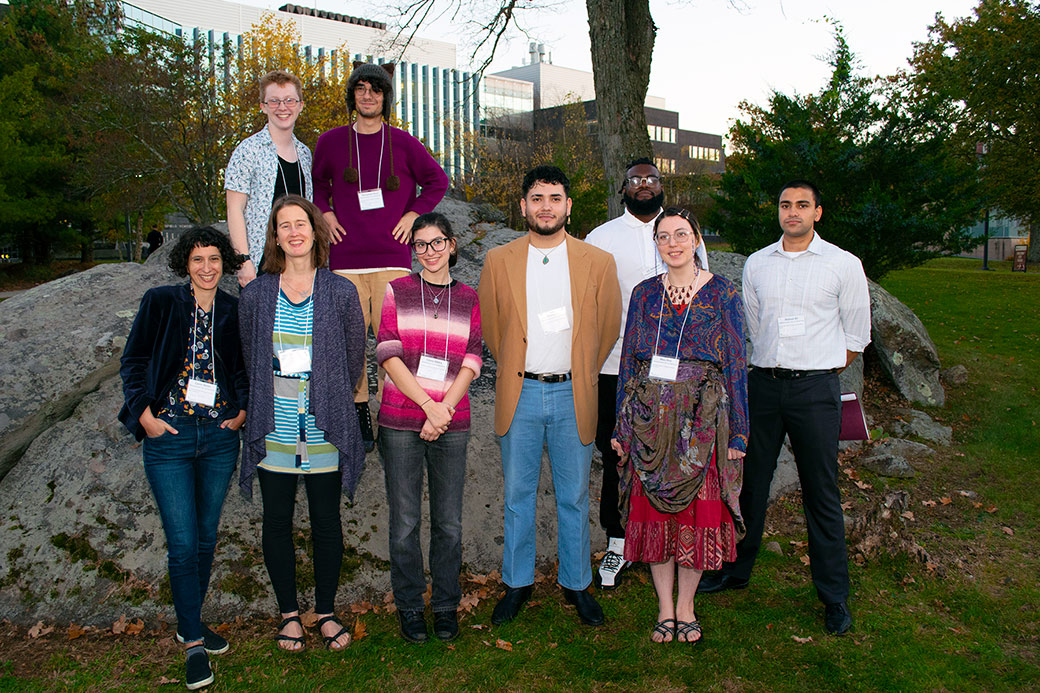
By Diane Couzens | Winter 2024
For the first time since 2015, Ramapo College hosted the Council of Public Liberal Arts Colleges’ (COPLAC) Northeast Regional Undergraduate Research, Scholarly and Creative Activity Conference. Forty-eight students from Ramapo, Eastern Connecticut State University, Keene State College, Massachusetts College of Liberal Arts and SUNY Geneseo showcased their work during poster sessions, oral presentations and visual arts exhibitions.
Established in 1987, COPLAC’s mission is to advance the aims of its member institutions and drive awareness of the value of high-quality, public liberal arts education in a student-centered, residential environment. Thirty colleges and universities across the United States and one in the Canadian province of Alberta are members. As Executive Director Dr. Cole Woodcox notes, COPLAC is one of just two higher education consortia consisting entirely of public institutions out of the 50+ members of the Association of Collaborative Leadership network, which includes other consortia such as the Big Ten Academic Alliance, America East Conference and the Association of Governing Boards of Universities and Colleges.
Ramapo College is one of the original and founding members of COPLAC along with eleven other institutions, brought together by Dr. David G. Brown, the then-chancellor of The University of North Carolina Asheville. COPLAC’s historical accounting notes: “At this point, many of these institutions and their chief executives felt themselves to be largely invisible in the panoply of American higher education. So, an important aspect of the initial urge to consort with other, similar colleges and universities was to gain higher visibility, individually and collectively.”
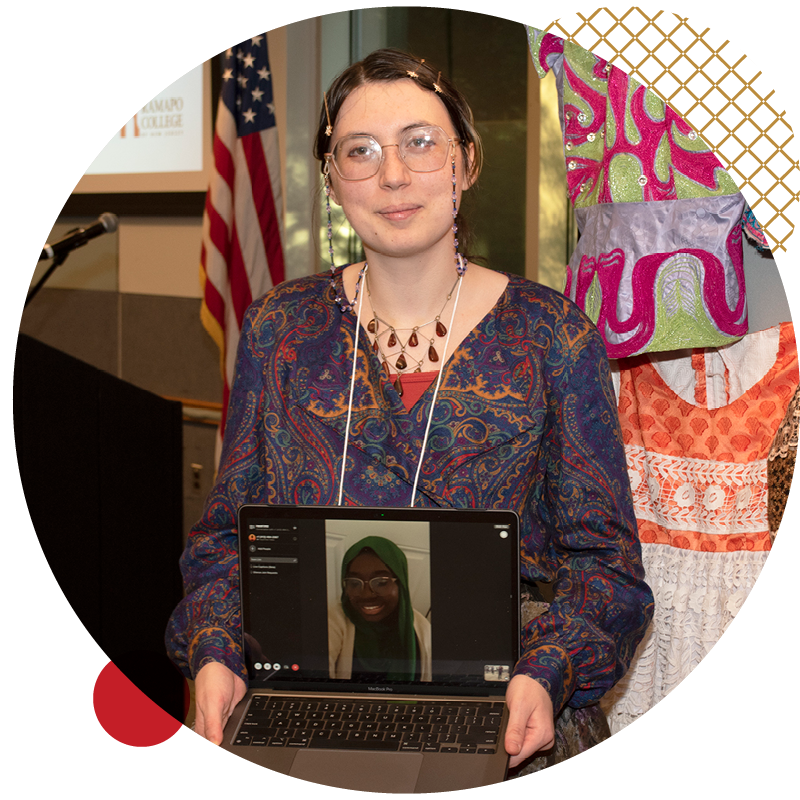
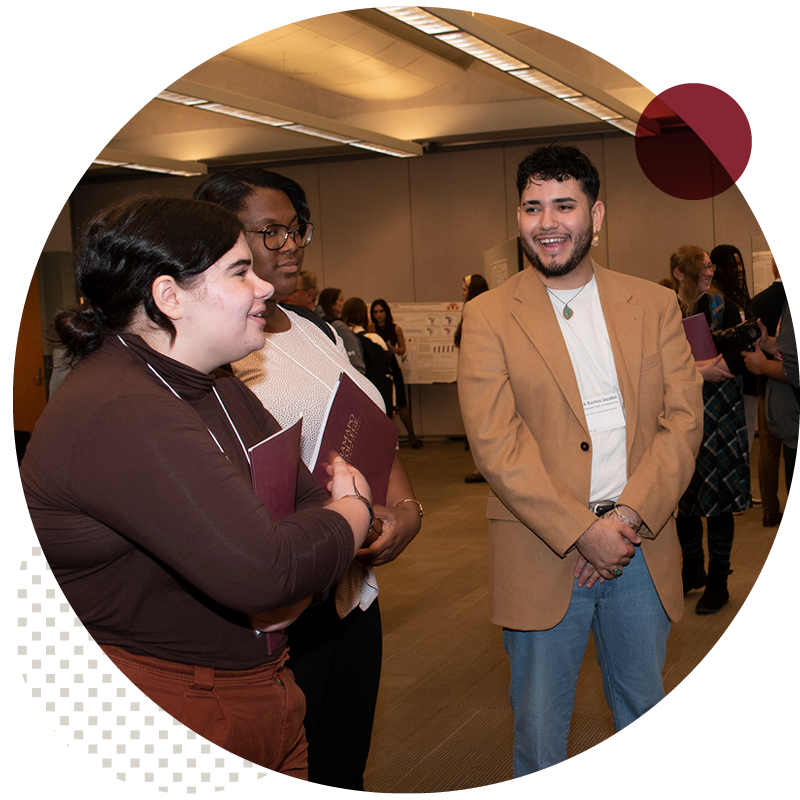
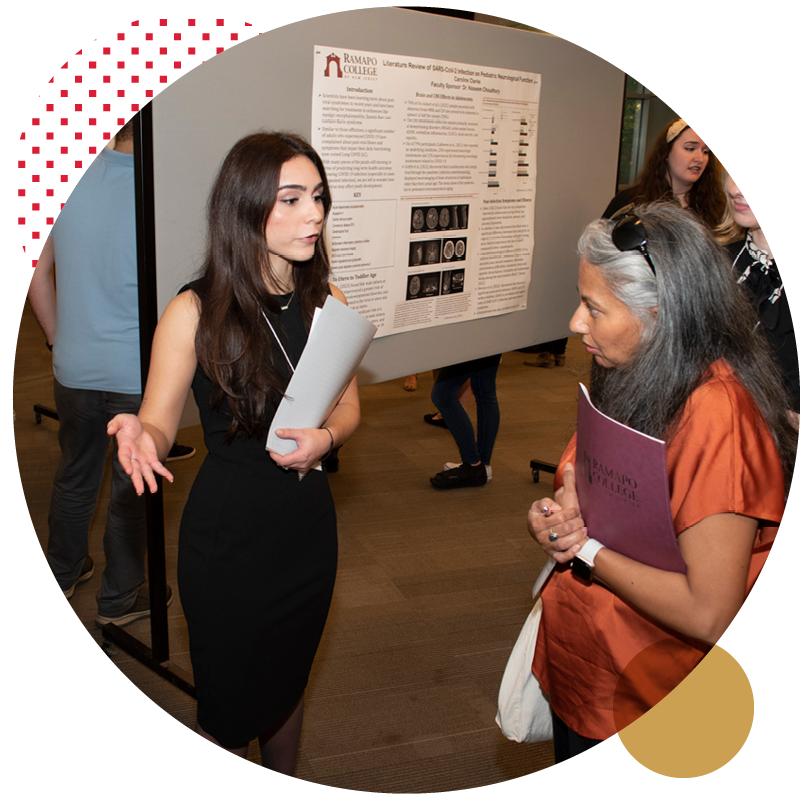
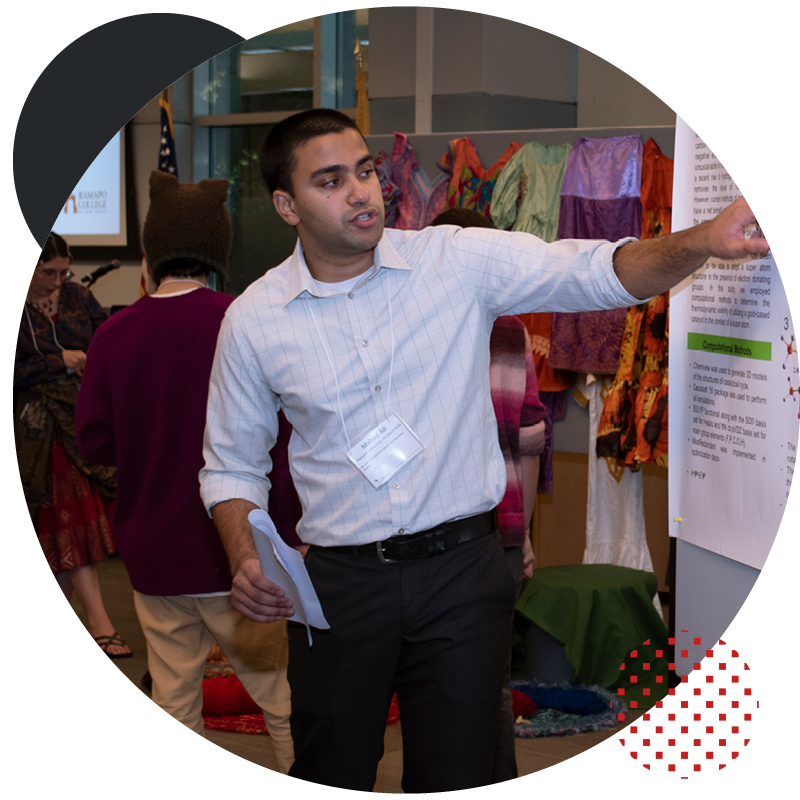
Over the last 35 years, COPLAC’s relevance has further evolved. Woodcox shared: “Because we are public institutions, grounded in accountability, we serve as an intellectual, cultural, social and economic anchor to our communities…even now, when the public questions the value of higher education and especially this niche of a liberal arts education, I find it an easy question to answer: a multidisciplinary perspective helps prepare people to look and investigate an issue through multiple perspectives, to find solutions from multiple perspectives. And, the COPLAC mission to elevate its institutions’ visibility is being realized. The value of a public liberal arts education has become much more evident over the last ten years because we are effectively communicating why its multidisciplinary approach is so crucial to the success of our society and our democracy: because it contributes to understanding issues, taking action and finding solutions.” It’s no coincidence that Woodcox’s explanation sounds similar to President Cindy Jebb’s oft-repeated words regarding the college’s strategic plan, “Boldly Ascending:” “Our democratic society requires ethical, empathetic, inclusive and responsible leaders who can build and lead diverse teams across all sectors and be the change agents necessary to innovatively elevate the human condition in New Jersey and beyond.” The commonalities? Serving a community and advancing the human experience.
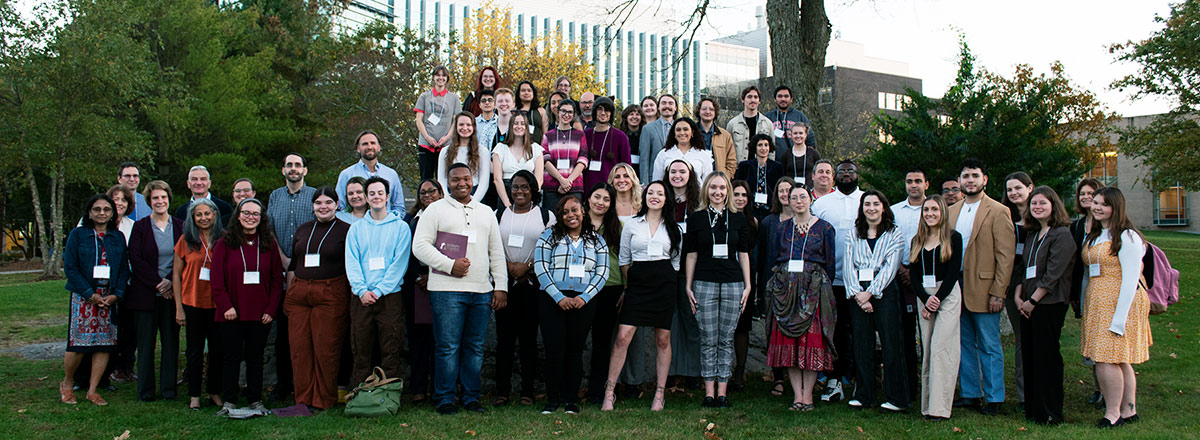
COPLAC organizes a variety of programs and opportunities for its member institutions, but its three annual regional undergraduate research conferences represent its hallmark. “Accessibility is at the core of COPLAC’s identity,” Woodcox notes. “Public liberal arts institutions maximize and optimize student opportunities, and the undergraduate conferences are an affordable, approachable and accessible venue in which to present the work of students and faculty while making the liberal arts visible.” Indeed, registration for the conference costs just $40 per student, which, compared to other conference registration fees, is hundreds of dollars less for a student to attend and present. As the host institution, all Ramapo College students attended this year’s conference for free.
Thirteen Ramapo undergraduate students had their work accepted to the Northeast Regional Undergraduate Research, Scholarly and Creative Activity Conference. Four offered an inside look at their research process and the impacts it made on them.
During her first year at Ramapo, Hannah Scroggins took the general education course, Introduction to Astronomy, and “fell in love with astronomy – I couldn’t stop thinking about it.” As a sophomore she enrolled in a law and society course with Professor Mihaela Serban and, through a research paper assignment, stitched the two fields together by exploring space law through a multi-method research approach that included doctrinal legal and philosophical analysis. At COPLAC, Hannah presented her scholarship which investigates the tensions between the international global peace commons, the Outer Space Treaty of 1967 and newly-emerging capitalist ambitions to permit non-astronaut citizens into space. She argued that public-private alliances with government oversight are necessary to advance space travel. As for the next step in this burgeoning field, Hannah said, “It can go as far as influencing modern space law, and what we as a nation and world are willing to do for space travel. The sky’s the limit!”
Jenna Vesey spoke about the influence of her faculty mentor, Professor Joost Monen, which went far beyond simply supporting her research on genes in budding yeast. “I had always thought that I was going to be a pre-med student and go to medical school because I wanted to help and work with people. In my second year, I took a genetics class with Professor Monen and started learning about cell genetics. When I found out he did research with students, I asked if I could work in the genetics lab with him. That experience literally changed the course my life – I am now pursuing the fields of human genetics and pharmacology because I love being in the lab.”
The research Sara Hosbach conducted and presented at COPLAC prompted her to delete TikTok from her phone. “I started exploring the toxic side of social media and how it influences college students’ perception of body image. Social media algorithms are designed to keep you tied to them, and it becomes a tool for users to escape reality. [My research] made me think there need to be other outlets in life that allow you to think for yourself, like the arts and humanities, and to nourish reality.” She reflected further, “My individuality is more important than whatever is trending, and [staying off the app] has allowed me to think more broadly.” Her research concluded that — while more research should be done — social media should shift into more healthy, realistic portrayals to avoid negative implications on students’ self-confidence.
COPLAC is the first academic conference at which Shreya Ranjan presented. A transfer student who originally started college at Rutgers University, it was her experience with Ramapo’s Enactus club that made her realize how much impact students can make on the world. Through Enactus, Shreya discovered the United Nations Sustainable Development Goal to achieve net-zero emissions by 2050, and how net-zero technology such as Blockchain can contribute towards that goal. Her COPLAC research explored how Blockchain can be further decentralized to permit its use to track corporations’ sustainable growth. She hopes to further her research on Blockchain so its use can be expanded more broadly to individuals and society.
Ramapo students’ scholarly and creative work showcases the college’s commitment to student success through high-impact practices. Representing all five Ramapo schools, their presentations are indicative of the broad academic excellence which Ramapo continually strives to achieve. Woodcox reflected on the conference, saying, “It’s great to see students realize there are people beyond their own institution who are genuinely interested in their topic, and for them to have a wide-ranging audience who can appreciate an orientation that’s both specialized and general.” As one student said at the close of a conference, ‘This is the liberal arts in action!’”
To read more about student research, visit www.ramapo.edu/provost/student-academic-success. For more information about COPLAC, visit www.coplac.org.
2023 COPLAC Presentations by Ramapo College Students
Caroline Clark
Major: Psychology
Project: Systematic Review of SARS-CoV-2 Infection on Pediatric Neurological Function
Faculty mentor: Professor Naseem Choudhury
Agrim Gupta
Major: Engineering Physics
Project: COMSOL Multiphysics Modeling for Thermally Efficient Windows
Faculty mentor: Professor Daniela Buna
Sara Hosbach
Major: Communication Arts
Project: Social Media, Body Image and Self-Esteem: A Study
Faculty mentor: Professor Satarupa Dasgupta
Lena Mardini
Major: Psychology and English/Literary Studies
Project: One Wild and Precious Life. Reflections on Mary Oliver and One-Stroke
Faculty mentor: Professor Lisa Cassidy
Tina Nosrati
Major: Computer Science
Project: The Art of Communication with AI
Faculty mentor: Professor Ali Al-Juboori
Sarah Panicucci (Major: Marketing) and Alexey Maydanov (Major: Management)
Project: Hungry for Change: A Multi-Dimensional Analysis of Food Security in Sub-Saharan Africa
Faculty mentor: Professor Fariba Nosrati
Kiely Paris-Rodriguez
Major: Political Science and Psychology
Project: Space: Geography and Companies
Faculty mentor: Professor Jeremy Teigen
Shreya Ranjan
Major: Information Technology Management
Project: Leveraging Blockchain to Enhance ESG Reporting and Achieve Sustainable Development Goals
Faculty mentor: Professor Nikhil Varma
Danielle Rosengrant (Major: Biology) and Suzanne Zaugg (Major: Psychology and Neuroscience)
Project: Electrophysiological Differences in Auditory Processing Event-Related Potentials (ERPs) in Adults with High and Low Self-Reported Deficits of Attention
Faculty mentor: Professor Naseem Choudhury
Jae’l Rumph
Major: Law and Society
Project: Understanding the Epidemic of Mass Shootings through American Gun Culture and the Second Amendment
Faculty mentor: Profess Sanghamitra Padhy
Hannah Scroggins
Major: Law and Society
Project: From Privatizing Space to Infinity and Beyond
Faculty mentor: Professor Mihaela Serban
Mia Shutz
Major: Visual Arts/Electronic Art and Animation
Project: Maladaptive Forest
Faculty mentor: Professor Ann LePore
Jenna Vesey
Major: Bioinformatics
Project: Examining the Role of ATF1, ATF2 and IAH1 in the Production of the Banana Aromatic, Isoamyl Acetate
Faculty mentor: Professor Joost Monen
